Don’t let your ability to pay stop you from applying to selective colleges
A recent study from the National Bureau of Economic Research found that the vast majority of low-income, high-achieving students do not apply to any selective colleges or universities. By not applying, poor students could potentially be missing out on a better education, a more generous financial aid package, and greater employment prospects.
Wealthy vs. low-income students
Most wealthier, high-achieving students (those with SAT or ACT scores in the top 10 percentile) apply to several schools with median SAT scores close to their own, along with reach and safety schools. This gives them the ability to choose from different colleges, compare financial aid packages, and select the best college fit and value.
But the story is different for high-achieving, low-income students. According to Slate, 53% percent of these students apply to zero schools whose median SAT or ACT scores are similar to their own, and most apply only to a single unselective school. Only an estimated 8 percent mimic the behavior of wealthier high-achieving students by applying to several selective schools, including some reaches and safeties.
Why the difference?
One possible reason for the discrepancy is that low-income students are scared off by the sticker prices of prestigious universities. Many do not realize that selective institutions could potentially cost them less, since these schools tend to have large endowments and are more generous with financial aid than the less prestigious two-year and four-year colleges to which they apply.
Another possibility is that low-income students simply lack access to information about more selective colleges. If a low-income student attends a high school where many students do not go to any college, let alone prestigious, brand-name universities, the school’s guidance counselor many not have the experience to help the student explore options and find a good fit for his or her aptitude.
The problem
The danger in smart, poor students not applying to selective colleges is that they might end up paying more for a less valuable degree. They might not realize they could have gotten a better financial aid package from a wealthier college and end up paying thousands of extra dollars for a less prestigious degree.
Low-income students may also assume that prestigious colleges (such as Ivy League schools) are only for the wealthy, creating a vicious cycle where the rich attend these schools, make connections with other wealthy students, and go on to get jobs and become richer, while the poor attend less-prestigious schools and end up with lower-paying jobs and a lack of influential connections.
Apply to college as if price is no object
No matter what your family’s income level or ability to pay for college, exploring all of your college options is one of the best financial decisions you can make. Even if the sticker price seems far out of your price range, you won’t know the final cost of attendance until you receive your personal financial aid package. While some schools might appear cheaper based on sticker price alone, they may also have fewer resources to give to needy students. And it’s certainly important to assess the long-term worth of a degree in terms of graduation rates, employment prospects, and educational value.
Are you a smart, low-income student trying to decide where to apply to college? Check out the Princeton Review’s list of Colleges with the Best Financial Aid.
affording college, applying for college, college costs, financial aid, paying for college
